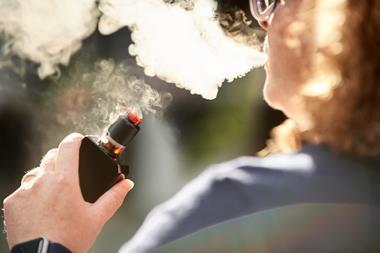Association of Convenience Stores (ACS) has reiterated its calls to Government to cancel plans to introduce a tax on soft drinks in response to the publication of the Finance Bill, raising concerns that the proposals will affect small businesses disproportionately.
The government confirmed that it intends to move forward with plans to introduce a levy on soft drinks with a high sugar content through the publication of draft provisions in the Finance Bill, which also includes details of plans to introduce a minimum excise tax on tobacco products.
ACS responded to the Government’s initial consultation on the soft drinks levy earlier this year, urging the government to work in partnership with the industry instead of introducing a tax that would not change consumer behaviour.
ACS chief executive James Lowman said: “Convenience stores are already playing an important role in addressing the issue of obesity by increasing their ranges of healthy and fresh foods. We are concerned that a levy on soft drinks manufacturers will result in increased costs for retailers, as the manufacturers could pass on the levy through the supply chain.
“Smaller retailers do not have the buying scale to resist these costs being passed on to them, whereas large multiple retailers can push back against additional costs caused by exchange rate changes, production cost increases, or the introduction of a levy like this.
“We fear that the sugar levy will disproportionately impact smaller retail businesses and will respond to the technical consultation in the new year, urging the Government to work with suppliers and retailers on a partnership approach instead of the blunt instrument of a soft drinks levy.”
Elsewhere in the Finance Bill, proposals for a minimum excise tax would seek to ensure that the cheapest tobacco on sale in the retail sector yields a higher tax take per pack.
In previous responses to the consultation on the introduction of a minimum excise tax, ACS has raised concerns that such a tax could further fuel the illicit market, and has called for it to only be introduced if it is accompanied by a new approach to tobacco excise policy that focuses on reducing the market for non-UK duty paid tobacco.
Lowman said: “The policy of dramatically increasing tobacco tax every year is fuelling an illegal trade that is damaging thousands of legitimate retailers. If ministers decide to go ahead with a minimum excise tax then they must do so alongside a new strategy focused on reducing the supply and demand for illegal tobacco products.”






























No comments yet